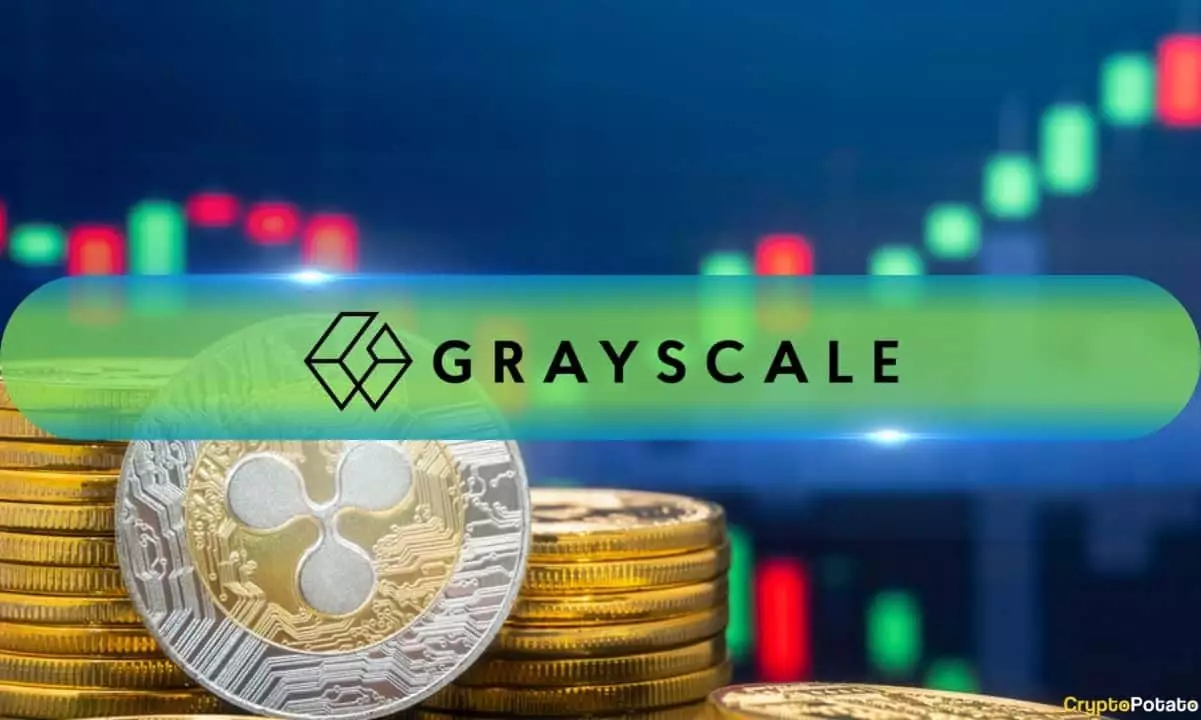In a progressive step toward mainstreaming cryptocurrency investment, Grayscale Investments has applied to the U.S. Securities and Exchange Commission (SEC) for the conversion of its XRP Trust into an exchange-traded fund (ETF) on the NYSE Arca. This application marks a significant moment not just for Grayscale but for the cryptocurrency market at large, as it seeks to simplify access for investors eager to enter the world of digital assets without the intricacies and risks associated with direct investment.
Grayscale’s XRP Trust, boasting over $16 million in assets under management, stands as a notable investment vehicle backed by Ripple’s native token—XRP. Converting this trust into an ETF is seen as a strategic move that promises to offer enhanced accessibility to a broader array of investors. As the demand for simplified investment solutions in the cryptocurrency space continues to rise, the ETF model is particularly attractive; it allows investors to buy shares that represent holdings in the underlying asset without the necessity of purchasing the actual digital currency.
The decision to apply for an ETF also aligns with institutional investment trends. Grayscale joins a growing list of firms—such as CoinShares, Wisdom Tree, and Bitwise—who are actively submitting ETF applications for XRP. This surge in activity signals that institutional participants are finding their foothold in the crypto market, driven by a renewed pro-crypto political climate following Donald Trump’s inauguration.
Trump’s presidency is perceived to be a catalyst for a more favorable environment for cryptocurrencies. His administration’s apparent endorsement of digital assets has encouraged companies, including Grayscale, to explore new avenues for revenue and investor engagement. Just days before the XRP ETF announcement, Grayscale expressed similar ambitions for Solana and Litecoin, indicating a shift in focus toward a diverse set of offerings that respond to market demands.
Additionally, Grayscale’s introduction of the Grayscale Bitcoin Miners ETF highlights an innovative approach to tapping into the cryptocurrency ecosystem, allowing investors to participate in the profitability of publicly traded companies engaged in Bitcoin mining. This diversification strategy reflects an understanding of the multiple revenue streams that can be pursued within the digital asset framework, potentially lowering the barriers to entry for investors hesitant about directly holding cryptocurrencies.
As Grayscale contemplates this strategic transition, it must navigate a complex regulatory landscape under the SEC, led by interim Chair Mark Uyeda. The SEC has been deliberating on cryptocurrency regulations, particularly concerning the classification of digital assets as securities. While previous chairpersons like Gary Gensler approved ETFs based on Bitcoin and Ethereum, the agency has resisted endorsing additional crypto ETFs due to concerns over regulatory compliance.
XRP itself is enmeshed in a protracted legal battle with the SEC, as Ripple Labs faces accusations of conducting an unregistered securities offering that raised $1.3 billion. The outcome of this legal tussle looms large over the potential success of the XRP ETF. Any resolution could dramatically influence not just Ripple but the entire cryptocurrency ETF market.
While the excitement surrounding the ETF application is palpable, the market reaction to recent developments has been mixed. XRP saw a slight decline of 0.6% within the past day, with a sharper drop of nearly 7% over the fortnight, indicating that market volatility persists. However, the broader picture reveals a glimmer of hope, as XRP has climbed approximately 44.9% over the past month, inspiring optimism that it could potentially eclipse its all-time high of $3.4, with analysts speculating it may reach $4.5 in the near future.
Grayscale’s application to transform its XRP Trust into an ETF could pave the way for increased institutional participation in the cryptocurrency market. Yet, the path ahead is fraught with challenges, primarily due to the ongoing regulatory uncertainties and market volatility. Regardless, the convergence of political impetus and market dynamics suggests that the future of cryptocurrency ETFs could herald a new era of investment in digital assets.

